Aaron Copland Piano Variations with Sheet music
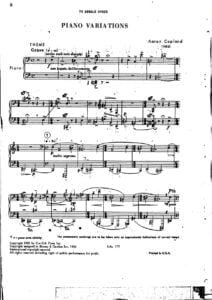
Aaron Copland: American composer
Aaron Copland, (born Nov. 14, 1900, Brooklyn, N.Y., U.S.—died Dec. 2, 1990, North Tarrytown [now Sleepy Hollow], N.Y.), American composer who achieved a distinctive musical characterization of American themes in an expressive modern style.
Copland, the son of Russian-Jewish immigrants, was born in New York City and attended public schools there. An older sister taught him to play the piano, and by the time he was 15 he had decided to become a composer. As a first step Copland tried to learn harmony through a correspondence course. Haltingly and in an environment not particularly conducive to art, he struggled toward his goal.
In the summer of 1921 Copland attended the newly founded school for Americans at Fontainebleau, where he came under the influence of Nadia Boulanger, a brilliant teacher who shaped the outlook of an entire generation of American musicians. He decided to stay on in Paris, where he became Boulanger’s first American student in composition. After three years in Paris, Copland returned to New York City with an important commission: Nadia Boulanger had asked him to write an organ concerto for her American appearances.
Copland composed the piece while working as the pianist of a hotel trio at a summer resort in Pennsylvania. That season the Symphony for Organ and Orchestra had its premiere in Carnegie Hall with the New York Symphony under the direction of the composer and conductor Walter Damrosch.
In his growth as a composer Copland mirrored the important trends of his time. After his return from Paris, he worked with jazz rhythms in Music for the Theater (1925) and the Piano Concerto (1926). There followed a period during which he was strongly influenced by Igor Stravinsky’s Neoclassicism, turning toward an abstract style he described as “more spare in sonority, more lean in texture.” This outlook prevailed in the Piano Variations (1930), Short Symphony (1933), and Statements for Orchestra (1933–35). After this last work, there occurred a change of direction that was to usher in the most productive phase of Copland’s career.
He well summed up the new orientation: “During these years I began to feel an increasing dissatisfaction with the relations of the music-loving public and the living composer. It seemed to me that we composers were in danger of working in a vacuum.”
Furthermore, he realized that a new public for modern music was being created by the new media of radio, phonograph, and film scores: “It made no sense to ignore them and to continue writing as if they did not exist. I felt that it was worth the effort to see if I couldn’t say what I had to say in the simplest possible terms.” Copland therefore was led to what became a most significant development after the 1930s: the attempt to simplify the new music in order that it would have meaning for a large public.
The decade that followed saw the production of the scores that spread Copland’s fame throughout the world. Most important of these were the three ballets based on American folk material: Billy the Kid (1938), Rodeo (1942), and Appalachian Spring (1944; commissioned by dancer Martha Graham).
To this group belong also El salón México (1936), an orchestral piece based on Mexican melodies and rhythms; two works for high-school students—the “play opera” The Second Hurricane (1937) and An Outdoor Overture (1938); and a series of film scores, of which the best known are Of Mice and Men (1939), Our Town (1940), The Red Pony (1948), and The Heiress (1948). Typical too of the Copland style are two major works that were written in time of war—Lincoln Portrait (1942), for speaker and chorus, on a text drawn from Lincoln’s speeches, and Letter from Home (1944), as well as the melodious Third Symphony (1946).
In his later years Copland refined his treatment of Americana: “I no longer feel the need of seeking out conscious Americanism. Because we live here and work here, we can be certain that when our music is mature it will also be American in quality.” His later works include an opera, The Tender Land (1954); Twelve Poems of Emily Dickinson (1950), for voice and piano; and the delightful Nonet (1960).
During these years Copland also produced a number of works in which he showed himself increasingly receptive to the serial techniques of the so-called 12-tone school of composer Arnold Schoenberg. Notable among such works are the stark and dissonant Piano Fantasy (1957); Connotations (1962), which was commissioned for the opening of Lincoln Center for the Performing Arts in New York City; and Inscape (1967). The 12-tone works were not generally well-received; after 1970 Copland virtually stopped composing, though he continued to lecture and to conduct through the mid-1980s.
For the better part of four decades, as composer (of operas, ballets, orchestral music, band music, chamber music, choral music, and film scores), teacher, writer of books and articles on music, organizer of musical events, and a much sought after conductor, Copland expressed “the deepest reactions of the American consciousness to the American scene.”
He received more than 30 honorary degrees and many additional awards. His books include What to Listen for in Music (1939), Music and Imagination (1952), Copland on Music (1960), and The New Music, 1900–60 (1968). With the aid of Vivian Perlis, he wrote a two-volume autobiography (Copland: 1900 Through 1942 [1984] and Copland: Since 1943 [1989]).
Copland’s sheet music is available for download from our Library.
Browse in the Library:
| Artist or Composer / Score name | Cover | List of Contents |
|---|---|---|
| Aerosmith – I Dont Want To Miss A Thing | ||
| Aerosmith 1973-1979 – Guitar Play Along with MP3 audio Guitar Signature Licks with Tablature |
 |
Aerosmith 1973-1979 Signature Licks |
| Aerosmith Greatest Hits (Guitar) with Tablature |
 |
aerosmith greatist hist guitar |
| Aerosmith Nine Lives Original Songbook Guitar Tabs |
 |
|
| Aesthetics Of Music Musicological Perspectives by Stephen Downes(Book) |
 |
|
| Affections touching across time (Inuyasha OST) Kaoru Wada | ||
| Afi – Love Like Winter | ||
| Afi – Miss Murder | ||
| AFI’s Top 25 Film Scores Songbook |
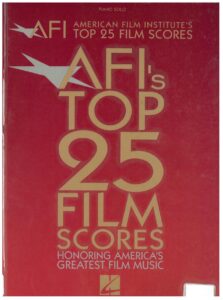 |
AFI’s Top 25 Film Scores Songbook |
| Africa – Toto.mscz | ||
| Africa And The Blues (Book) |
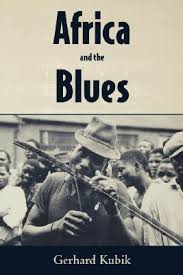 |
|
| Afro Cuban Keyboard Grooves by Manny Patiño and Jorge Moreno |
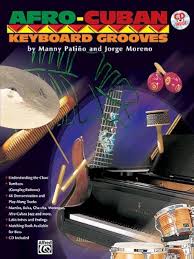 |
Afro Cuban Keyboard Grooves by Manny Patiño and Jorge Moreno |
| Afroman – Because I Got High | ||
| After Hours for PIANO DUET by Pam Wedgwood |
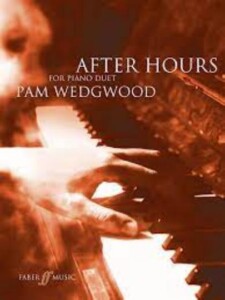 |
After Hours for PIANO DUET by Pam Wedgwood |
| After Hours For Solo Piano. Book 3 (Pam Wedgwood) |
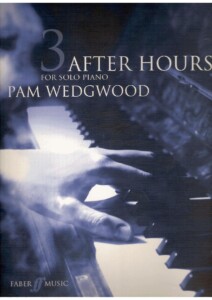 |
After Hours For Solo Piano. Book 3 (Pam Wedgwood) |
| After Hours for Trumpet and Piano by Pam Wedgwood |
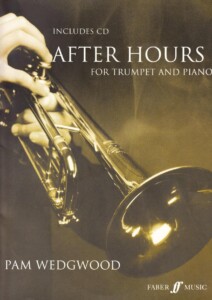 |
After Hours for Trumpet and Piano by Pam Wedgwood |
| After You’ve Gone Turner Layton And Henry Creamer 1918 Jazz Standard (Vintage sheet music) |
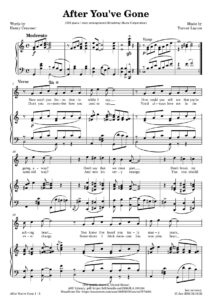 |
|
| Again, as before, alone (P. I. Tchaikovsky) | ||
| Age of Empires 2 – Main theme | Age of Empires 2 – Main theme | |
| Agnes Obel Chord Left |
 |
|
| Agnes Obel Fuel To Fire |
 |
|
| Agnes Obel Pass Them By |
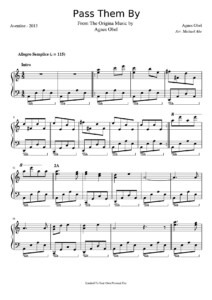 |
|
| Agnes Obel – Riverside Piano |
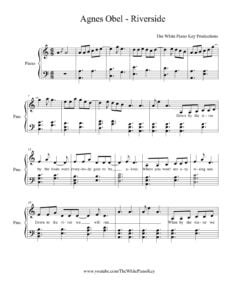 |
|
| Agnes Obel – September Song |
 |
|
| Agnes Obel – Tokka |
 |
|
| Agnes Obel Falling Catching |
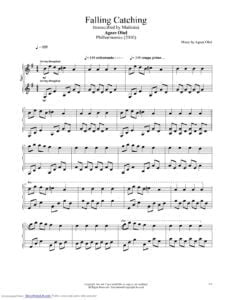 |
|
| Agnes Obel Falling, Catching |
 |
|
| Agnes Obel Familiar |
 |
|
| Agnes Obel Fuel To Fire |
 |
|
| Agnes Obel It’s Happening Again |
 |
|
| Agnes Obel Just So |
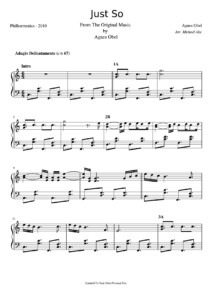 |
|
| Agnes Obel Mary |
 |
|
| Agnes Obel Riverside |
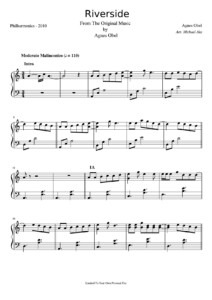 |
|
| Agnes Obel September Song |
 |
|
| Agnes Obel Smoke And Mirrors |
 |
|
| Agnes Obel The Curse |
 |
|
| Agnes Obel Tokka |
 |
|
| Agnes Obel Words Are Dead |
 |
|
| Aguas De Março Jazz Piano Score Jobim |
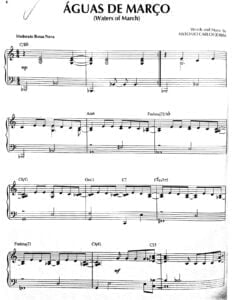 |
|
| Aha – Take On Me |
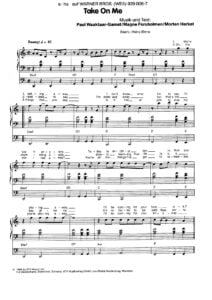 |
|
| Ahead On Our Way Ff Vii (Musescore File).mscz | ||
| Ahmad Jamal Poinciana Full score (Song of the Tree) | Ahmad Jamal Poinciana Full score (Song of the Tree) | |
| Ahmad Jamal The Ahmad Jamal Collection (Artist Transcriptions) |
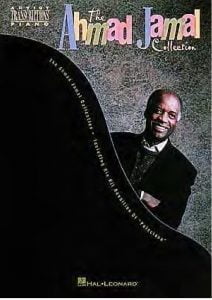 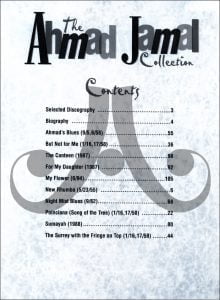 |
Ahmad Jamal The Ahmad Jamal Collection Artist Piano Transcriptions contents Ahmad’s Blues, But Not For Me, The Canteen, For My Daughter, My Flower, New Rhumba, Night Mist Blues, Poinciana (Song Of The Tree), Sumayah, The Surrey With The Fringe On Top |
| Ahmad Jamal Wave from the album The Awakening |
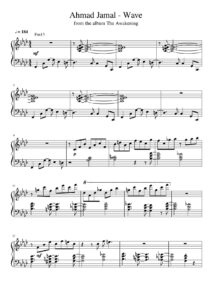 |
|
| Ai Mei – Rainie Yang | ||
| Aimee Mann – Wise Up | ||
| Ain’t Misbehavin’ Fats Waller As Played By Joe Pass (Musescore File).mscz | ||
| Ainsi soit je (Mylène Farmer) | ||
| Air on the G string, from BWV 1068 (10 string, Yepes tuning).mscz | ||
| Air Supply Greatest Hits |
 |
AIR SUPPLY GREATEST |
| Airegin by Soony Rollins – Jazz Play Along with sheet music |
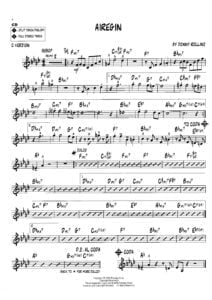 |
Airegin |
| Akira Ifukube – Sonata for Violin and Piano I – Allegro |
 |
|
| Akira Ifukube End Titles Godzilla Vs Destoroyah |
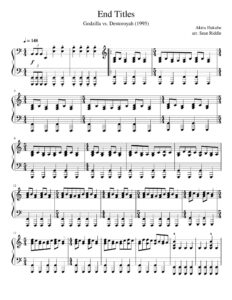 |
|
| Akira Ifukube Mesa March Godzilla |
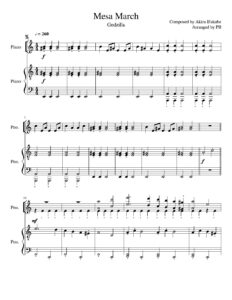 |
|
| Akira Yamaoka Silent Hill 2 Promise (Reprise) |
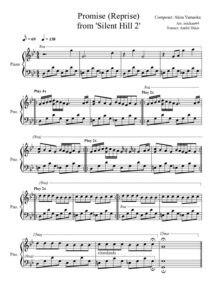 |
|
| Akira Yamaoka, Silent Hill Room Of Angel (Piano) | Akira Yamaoka, Silent Hill Room Of Angel (Piano) | |
| Aknin, Laurent Le Choix Du Coeur Easy Piano Solo (du film The Student and Mister Henri (L’Étudiante et Monsieur Henri) | Aknin-Laurent-Le-Choix-Du-Coeur-Easy-Piano-Solo | |
| Al Di Meola – Guitar Technique SongBook with Tablature |
 |
Al Di Meola – Guitar technique SongBook |
| Al Di Meola A Guide To Guitar Chords Scales And Arpeggios Master Classes With Bob Aslanian |
 |
Al Di Meola A Guide To Guitar Chords Scales And Arpeggios Master Classes With Bob Aslanian |
| Al Di Meola Collection |
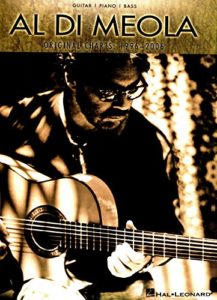 |
al di meola collection songbook |
| Al Di Meola Enigma Of Desire (Guitar) |
 |
|
| Al Di Meola Guitar School Elegant Gypsy Songbook with Tablature |
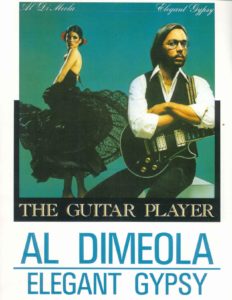 |
Al Di Meola Guitar School Elegant Gypsy Songbook |
| Al Di Meola Guitar Tabs Songbook Electric Rendezvous |
 |
Al Di Meola Guitar Tabs Songbook Electric Rendezvous |
| Al Di Meola Solace (Guitar) | Al Di Meola Solace (Guitar) | |
| Al Di Meola Solos (Guitar) with Tablature |
 |
al di meola solos |
| Al Di Meola Super Guitarist Guitar Tabs Songbook |
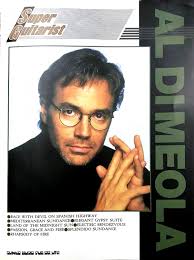 |
Al Di Meola Super Guitarist Guitar Tabs Songbook |
| Al Di Meola When Youre Gone | Al Di Meola When Youre Gone | |
| Al Green – Let´s Stay Together Melody And Guitar Chords |
 |
|
| Al Green Let’s Stay Together |
 |
|
| Al Jarreau – Breakin’ Away |
 |
|
| Al Jarreau Spain (I can recall) Piano Vocal Guitar Chords |
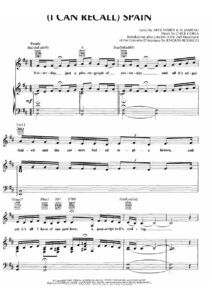 |
|
| Al Jarreau The Best Of Al Jarreau Piano Vocal Guitar chords |
 |
Al Jarreau The Best Of Book |
| Al Stewart – Time Passages |
 |
|
| Al Stewart – Year Of The Cat |
 |
|
| Al Stewart Greatest Songs Of Book |
 |
AL STEWART SONGBOOK |
| Aladdin – A Whole New World – Alan Menken | Aladdin – A Whole New World – Alan Menken | |
| Aladdin – Arabian Nights (Musescore File).mscz | ||
| Aladdin – Broadway Musical Songbook – Alan Menken |
 |
Aladdin – Broadway Musical Songbook – Alan Menken |
| Alain Barriere – Les Guinguettes |
 |
|
| Alain Barrière – Emporte Moi (Y Volveré) |
 |
|
| Alain Barriere – Tu T’en Vas |
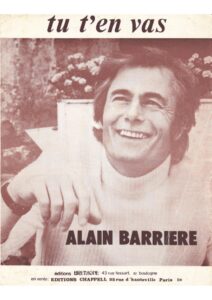 |
|
| Alain Chamfort Songbook Book |
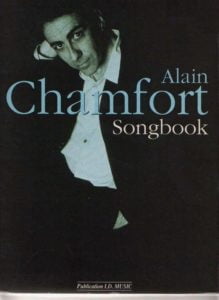 |
ALAIN CHAMFORT SONGBOOK |
| Alain Souchon Au Ras Des Paquerettes Piano Vocal Guitar TAB |
 |
Alain Souchon Au Ras Des Paquerettes Piano Vocal Guitar TAB |
| Alain Souchon Ecoutez d’où Ma Peine Vient Piano Vocal Guitar chords |
 |
Alain Souchon Ecoutez d’où Ma Peine Vient Piano Vocal Guitar chords |
| Alain Souchon les plus grands succès de (partitions, sheet music) Piano Vocal |
 |
Alain Souchon les plus grands succès de (partitions, sheet music) Piano Vocal |
| Alan Belkin – Una Guía Práctica de Composición Musical (Spanish) | Book Theory | |
| Alan Jackson – Between the Devil and Me |
 |
|
| Alan Jackson – Buicks to the Moon |
 |
|
| Alan Jackson – I’ll Go On Loving You |
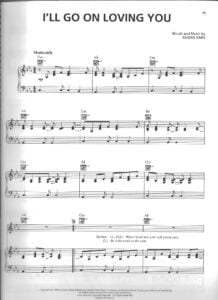 |
|
| Alan Jackson – It’s Five Oclock Somewhere |
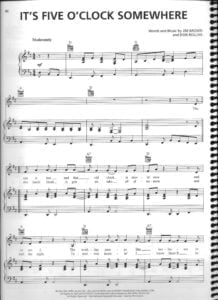 |
|
| Alan Jackson – Little Bitty |
 |
|
| Alan Jackson – Once In A Lifetime Love |
 |
|
| Alan Jackson – Remember When |
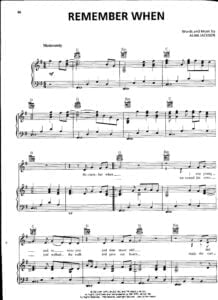 |
|
| Alan Jackson – That’d Be Alright |
 |
|
| Alan Jackson – There Goes |
 |
|
| Alan Jackson – Where I Come From |
 |
|
| Alan Jackson Remember When Piano Solo |
 |
|
| Alan Lomax – The Penguin Book Of American Folk Songs (GUITAR) |
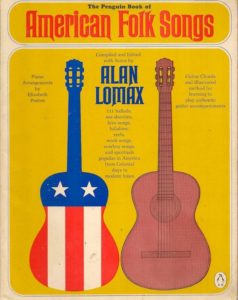 |
Alan Lomax – The Penguin Book Of American Folk Songs GUITAR) |
| Alan Menken – A Christmas Carol A Place Called Home |
 |
|
| Alan Menken – Beauty and the Beast (easy piano) Complete score arr. piano & guitar chords |
 |
Alan Menken – Beauty and the Beast (easy piano) |
| Alan Menken – Little Shop Of Horrors |
 |
Alan Menken – Little Shop Of Horrors |
| Alan Menken – Songbook |
 |
Alan Menken songbook sheet music |
| Alan Menken – Tangled (Disney) Rapunzel songbook |
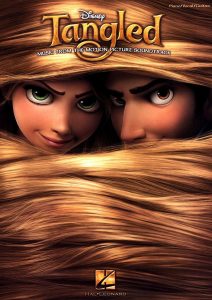 |
Tangled |
| Alan Menken A Christmas Carol (The Musical) |
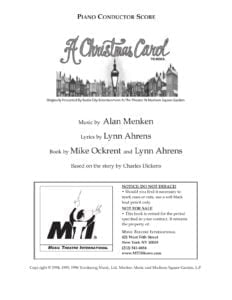 |
|
| Alan Menken Aladdin (songbook) |
 |
Alan Menken Aladdin |
| Alan Menken I see the light (Tangled-Disney) | Alan Menken I see the light (Tangled-Disney) | |
| Alan Menken My Christmas Tree from Home Alone 2 Lost In New York |
 |
|
| Alan Menken The Hunchback Of Notre Dame (Disney) |
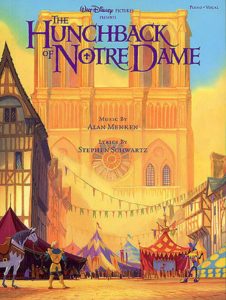 |
Alan Menken The Hunchback Of Notre Dame (Disney) |
| Alan Menken The Little Mermaid Piano Vocal Score (The Musical) | Alan Menken The Little Mermaid Piano Vocal Score (The Musical) | |
| Alan Parsons – Eye in the Sky |
 |
|
| Alan Parsons Project – Don’t Answer Me |
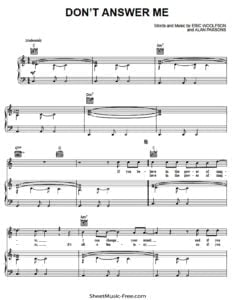 |
|
| Alan Parsons Project – Eye In The Sky |
 |
|
| Alan Parsons Project – Time |
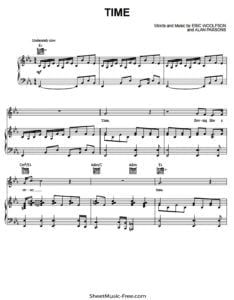 |
|
| Alan Parsons Project – Eve (Piano, Vocal, Guitar) Songbook |
 |
Alan Parsons Project – Eve (Piano, Vocal, Guitar) Songbook |
| Alan Parsons Project – Eye In the Sky (Piano, Vocal, Guitar Songbook) |
 |
Alan Parsons Project – Eye In the Sky (Piano, Vocal, Guitar Songbook) |
| Alan Parsons Project – I Robot (Piano, Vocal, Guitar) Songbook |
 |
Alan Parsons Project – I Robot (Piano, Vocal, Guitar) Songbook |
| Alan Parsons Project – The Essential |
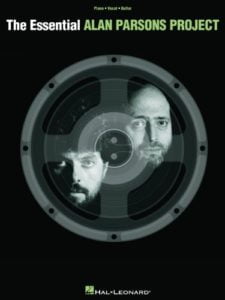 |
Alan Parsons Project |
| Alan Parsons Project Gaudí Piano Vocal Guitar chords |
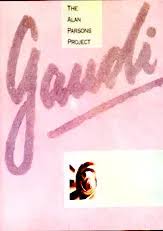 |
Alan Parsons Project Gaudí Piano Vocal Guitar chords |
| Alan Silvestri – Avengers Infinity War Medley – Piano Solo | Alan Silvestri – Avengers Infinity War Medley – Piano Solo | |
| Alan Silvestri – Contact Main Theme |
